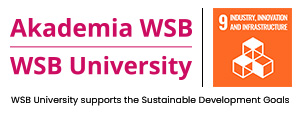Green transformation, digitalisation, the labour market or cooperation between higher education and the economy were just some of the topics discussed during the second day of the European Economic Congress in Katowice.
Among the many speeches, panels and debates devoted to the most important aspects of economic life, there was no lack of topics relating to education and science. The debate entitled 'Education for the economy' was attended by Prof. Zdzisława Dacko-Pikiewicz - Rector of the WSB University, and other panellists included:
Marzena Machałek - Secretary of State, Government Plenipotentiary for supporting the educational function of schools and institutions, inclusive education and vocational training, Ministry of Education and Science,
Dr. Janusz Michałek - President of the Management Board of the Katowice Special Economic Zone,
Prof. Piotr Moncarz - Adjunct Professor, Stanford University, Co-founder and Chairman, US-Polish Trade Council, Vice President, Chief Technologist, XGS Energy Inc,
Advocate, Foundation for the Development of the Education System,
Prof. Dr. Marek Rocki - Institute of Economic Development, Warsaw School of Economics
Tomasz Trawiński, Ph.D. - Prof. of Pol Silesia - Prorector for Infrastructure and Promotion, Silesian University of Technology.
DEBATE TOPIC: Polish secondary and higher education vs. labour market needs. How can the educational offer adapt to the changing needs of the economy? Education for the future - how to do it? Specialisation vs universality. Shorter education cycles, continuing and dual education formulae, cooperation between universities and business, opportunities to complement and develop competences. Personnel for vocational education and their preparation. Quality of education and its continuous monitoring, analysis, evaluation. Quality management procedures in higher education institutions. Periodic validation of curricula, selection of criteria and improvement.
The European Economic Congress in Katowice has for 15 years gathered business representatives, presidents of global corporations, decision-makers from Poland, Europe and the world, who have a real impact on economic and social life, politicians and experts, remaining one of the largest economic events in Central Europe.


